We caught up with music lover and rave culture expert Tijana T.
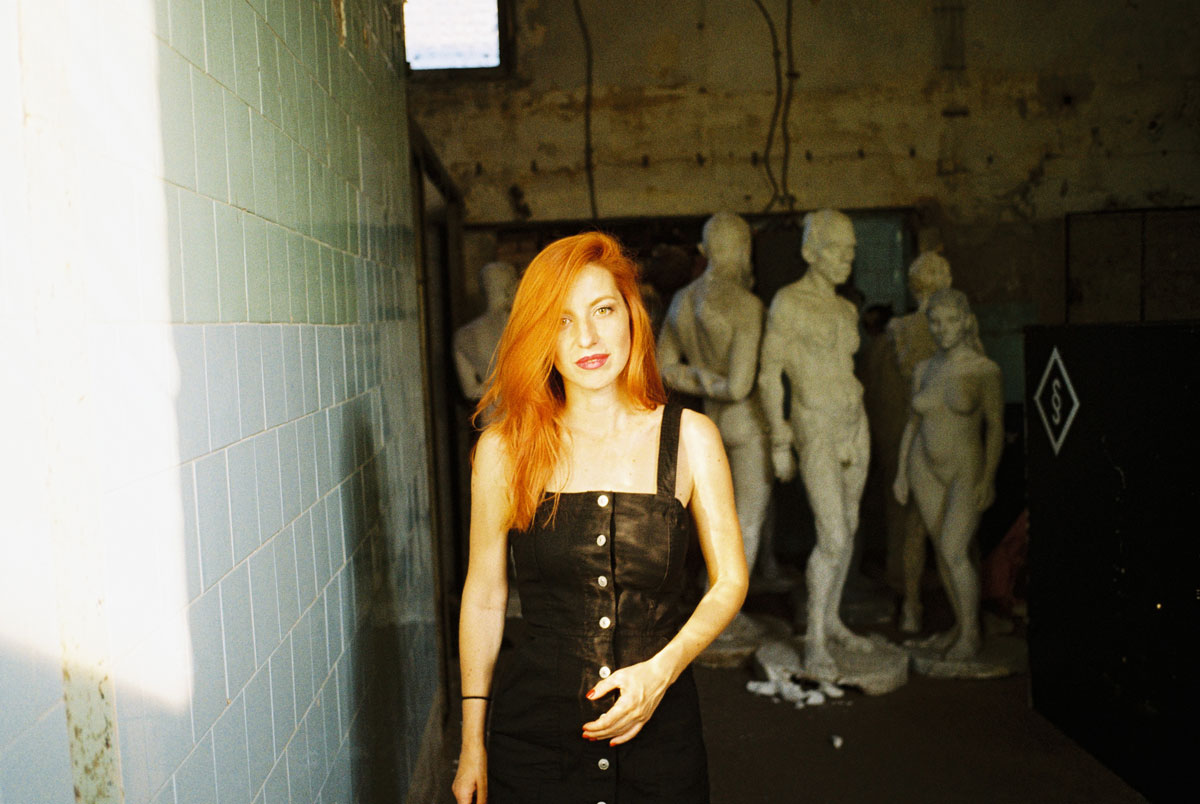
“After the revolution, who’s going to pick up the garbage on Monday morning?” asks Mierle Ukeles in her 1969 Manifesto for Maintainence Art. In the context of the late ’60s, the artist shone her light on the forced, and false, dualism between creativity as progress and care as mundane sustenance. Five decades later, the question’s urgency persists and has pervaded the realm of fields way beyond the arts; who’s willing to get their hands dirty for the desired shift in lived experience that we all so dream of?
Translating Ukeles’ question to a matter close to our heart, we asked ourselves, Why do we find refuge in the revolutionary spirit of a music beat? What is the communal practice we take part in every time we gather at the rave? Which are the values we uphold, and, when Monday morning comes, how will we transform dancefloor sweat into unified action?
To help us navigate these wandering but ever-present thoughts, we reached out to Tijana T: the beloved Serbian selector, who’s as much of a front-liner in the imagined rave utopia as she escapes the well-trodden path of the techno DJ archetype. Can Tijana shut down a hardcore function with an acid-infused moment you’ll find impossible to forget? Sure. Should you expect a linear progression of moods and styles? Chances are small. With rock and avant-garde music bands in her favourites list, an affinity for pop culture, and a journalistic background as TV and radio host, Tijana T’s kaleidoscopic approach to music defies what is often straightforwardly labelled as being a “techno DJ”. But even more so, her presence in the underground music scene puts a twist on the Eurocentric, ego-fuelled and business-like narrative that artists often find themselves in. Conscious of rave culture’s communal essence, and actively participating in conversations on diverse exposure and mental health awareness, Tijana T demands us to reflect on the exhilarating experience that a party can be.
In other words, what’s the change we want to see, which are the tools for us to utilize, and who will inhabit the utopia of tomorrow?
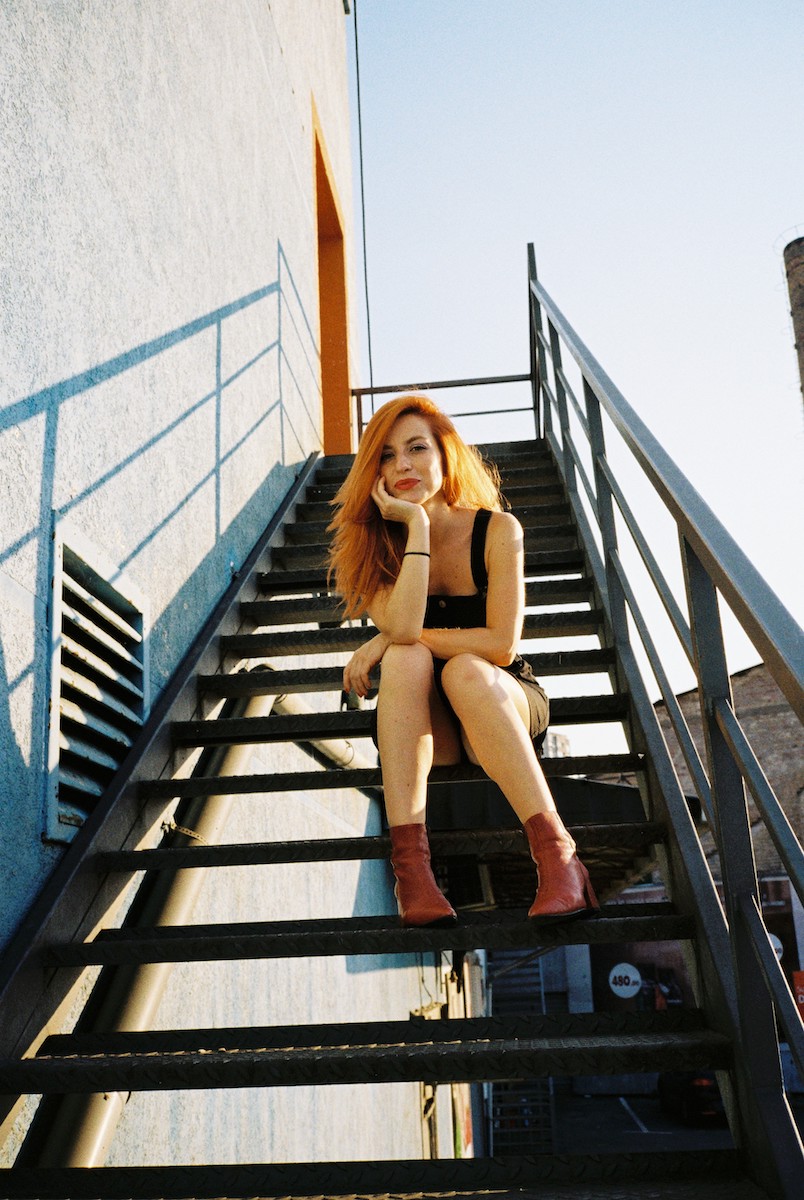
Tijana, at the end of your set for Glamcult and Spielraum’s UN/COMMON night, you put Björk in the hardcore mix and made us all go nuts. What motivates you to cross between moods and styles in this way?
This approach to DJ-ing is not a conscious decision or a plan, it’s just how it is. The way I play music is a result of all my life experiences. To begin with, I grew up under the huge influence of my uncle, who was a music nerd and introduced me to industrial, noise, and experimental music at a super early age, before I was even 10 years old. He also got me into labels like Ninja Tune and R&S, and bands such as Swans and Dead Can Dance, all of which still remain among my favourites. Secondly, I was always very much into singing and pop culture, especially in the ‘90s and ‘00s. So, I really love a good vocal. I was also working as a music selector, editor, journalist and presenter on national TV, and thus had to find a way to make something that would be appealing to big masses without compromising my own taste. At last, during my beginnings in DJ-ing and most of the time when I played in my home city Belgrade, we didn’t know about one and a half hour sets. It was always all night long, so that as an experience leaves a lot of space for different moods and styles. All of this explains why I don’t like being put in a box as a “techno DJ”. It sounds very limiting to me. I can play techno, and I can do it well, but that’s not all of the music I have to offer. I’m also not a house DJ, nor an electro, breakbeat or disco DJ. I’m a music lover, a selector and a digger. On a good night, I’m able to play the right track at the right time.
And do your surroundings influence the sets you play? Does playing for a Serbian crowd at home result in a different mix of sound than for one in, for example, Amsterdam?
Of course they influence me a lot. The main characteristics that a DJ should have are strong empathy and intuition. These are very abstract terms, but it’s necessary to be able to absorb what’s happening in the room, process it and bounce it back in a direction you think is right. For me, it’s always the hardest to play at home. I get the most nervous there. My experience on homeground was not the easiest when I decided to be a DJ. There was a lot of negativity, and even aggression, bullying and so on. So, I always feel like I’m being judged. The crowd in Serbia is also very experienced and educated, so most likely people in front of you would know your whole tracklist. And they will judge any DJ, no matter how big or small. In Amsterdam, or in Holland in general, it’s a bit easier—people are there to have fun, and they’re very open-minded, interested and supportive. Of course, if we’re talking about places like India, Colombia or Japan, these are totally different experiences. You can really see the cultural, social, political, and economic differences on the dancefloor. It all reflects on the bodily expression.
But why do you think there’s a difference between these music scenes and crowds?
The differences come from all sort of reasons. It’s different cultural heritage, different ways of communicating, also how easy or hard it is to find music. You don’t have all music just one click away everywhere in the world. And if the economy is bad, then it’s also hard to build and maintain local electronic music scenes. Sometimes you go to places and it’s the first time they hear this kind of music and it’s mind-blowing for the audience. In the end of course, it’s politics. In countries where people see no future, raving is much crazier, there’s always this feeling of the apocalypse being just around the corner. In other countries, this state of mind is very hard to imagine.
Which makes me think of what you said in an interview a while back, that “parties, clubs and festivals in the Western world also make youngsters a bit numb. It’s so easy to live in that bubble where everything is nice, all the people are familiar and you just travel, dance and get lost,”. Do you see any way(s) of taking the positivity from raves and translating it on a larger societal scale?
“Raving” has been here since the beginning of time. It has its own purpose in society and it’s always about a collective transcendental experience, regardless of whether it’s a hypnotic tribal dance, or thousands of people singing as one at a rock concert, or being carried away by the pumping bass in a techno club. The first and sole purpose is to understand that you’re not alone in this world, and that we’re all one and have much in common. The actual rave experience is more meditative and spiritual than a classic rock concert where you have the singer “preach” his own messages. Electronic music is open for individual interpretation during collective meditative dance and that’s a highly spiritual experience. So, if you develop this approach to your community, it’s already a much more caring and tolerating attitude that can affect everyday life and society on a greater scale. There are clubs, festivals and promoters that also include a lot of art in their party projects, and therefore act as cultural institutions, which is extremely important in the age of cultural collapse. There are also organizations, which are political, and that’s also fine—if you have the opportunity to address a critical mass, why not use it for an important message?
Back to the quote you mentioned, I wanted to say that people in rich and safe countries have different motives for raving than people in, let’s say, Serbia, Georgia or Palestine. For Westerners, it’s just a spice of an already comfortable life. For others, it’s a necessity for survival.
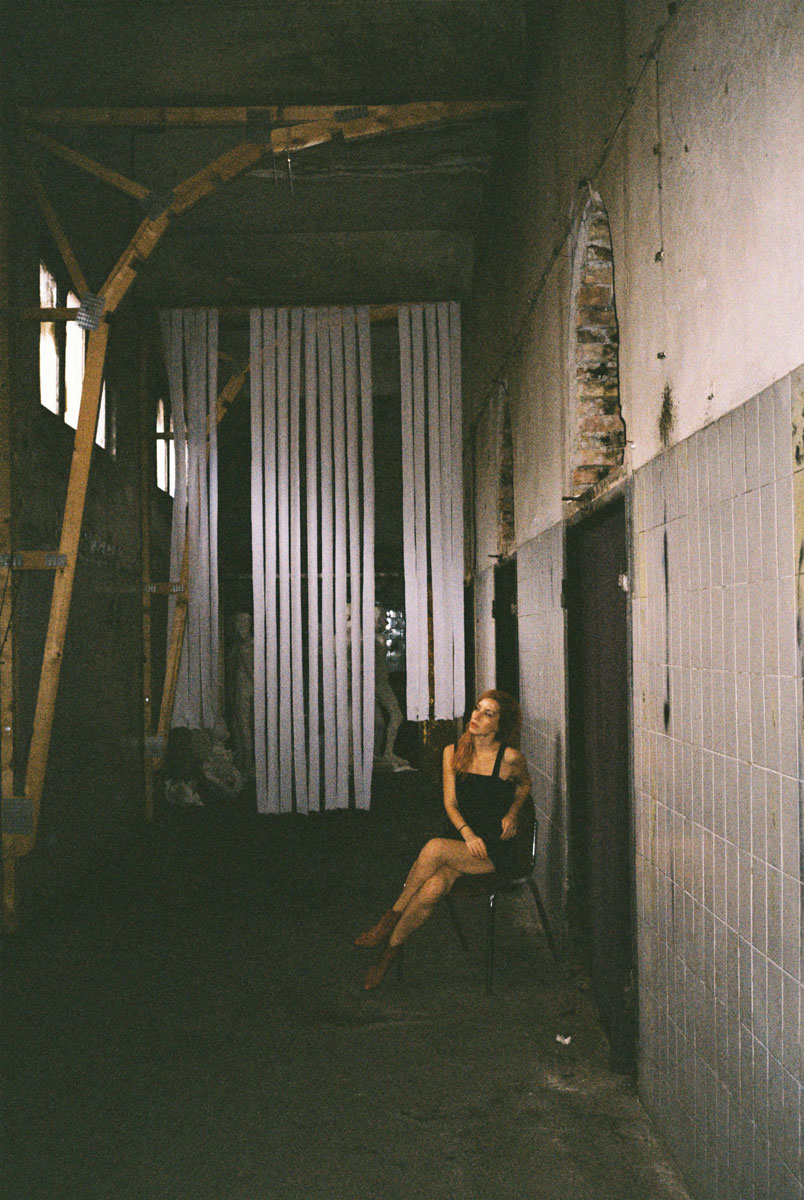
As someone who didn’t grow up in the West, you’ve been able to observe the similarities and differences between the dance music scene globally. In the past, you’ve said that “Dance music might pride itself on its progressivism and inclusivity, but it’s clearly plagued by a Western-centric caste system.” Do you still believe in this, and if yes, could you tell us more about this observation?
I guess I said this after my huge problems with attaining a UK visa, which totally jeopardised my career and progress. Then, I started thinking of how this is influencing things on a larger scale. Just by having a passport that’s not from a “first world” country, your chances of making an international career are much, much smaller. A lot of people from these countries don’t even dare to dream of touring internationally. So, I did a huge interview for Resident Advisor on this topic and we counted all the top 100 DJs in their list that year. I asked the journalist to name all the people who hadn’t come from Europe, the U.S., Australia and Japan. There were 2 artists.
I also noticed there are not too many Turkish people in Berlin clubs, neither many dark-skinned people at Dutch festivals. It all doesn’t make sense considering the demographics of these countries. I even witnessed Berlin bouncers admitting the door policy is quite discriminatory. I do understand people from different cultures have different musical heritage. The club/festival scene is dominated by house and techno, which is pretty much 4/4 beat and that is not appealing to everyone. Certain musical cultures are based on more syncopated and broken beats. Putting music theory aside, I do see that our scene is inclusive only in certain ways. I’d like to see more racial, class and cultural diversity.
Do you think there’s a solution, or at least some basic steps, which we can undertake to overthrow this West-centric system?
As always, it’s about exposure. It has worked out well for women, and now everyone knows that we can DJ seriously. It’s not that easy, as we would need to change the whole system. Big players have the power to change things, but they mainly care about profit, so they’d rather not take the risk. That’s why you have repeating programming on summer festivals. It would be such an amazing move to give a chance to outsiders, to those whose chances are already small, to think about diversity in music when programming a festival, to just put a great fucking DJ in a prime time slot, not the one with most likes on Instagram. I believe in a “don’t give people what they want, give them what they need” philosophy. If you have the power, use it to twist their minds and make a change. Boiler Room, RBMA and Resident Advisor are making good efforts in this direction. But also, things need to change locally. Locals should support locals. And when I say local, I’m thinking everything outside the big centers like Berlin, London, Amsterdam, etc… Locals should be proud of what they have in their own environment. Only once you build something strong enough in your own home can you offer it to the world. Ben Klock and Marcel Dettmann would not become international megastars if they didn’t have support from their local club—Berghain. It’s often the case that locals are mistreated, disrespected by local promoters, and that of course totally kills motivation to continue and move forward. I still don’t play main stages or good time slots at festivals in my own country, which is totally absurd.
Ticket prices are also not designed for people who’re not wealthy or at least financially comfortable. Everyone books huge names, then the budgets are high and you need to make an impressive production to attract people, because your festival line-up is not any different than you neighbour’s festival, and so on. With high ticket price you get homogenized crowd. There are beautiful exceptions to this, of course, and a lot of smaller independent initiatives, especially lately, this is the general trend I’m talking about, the big picture.
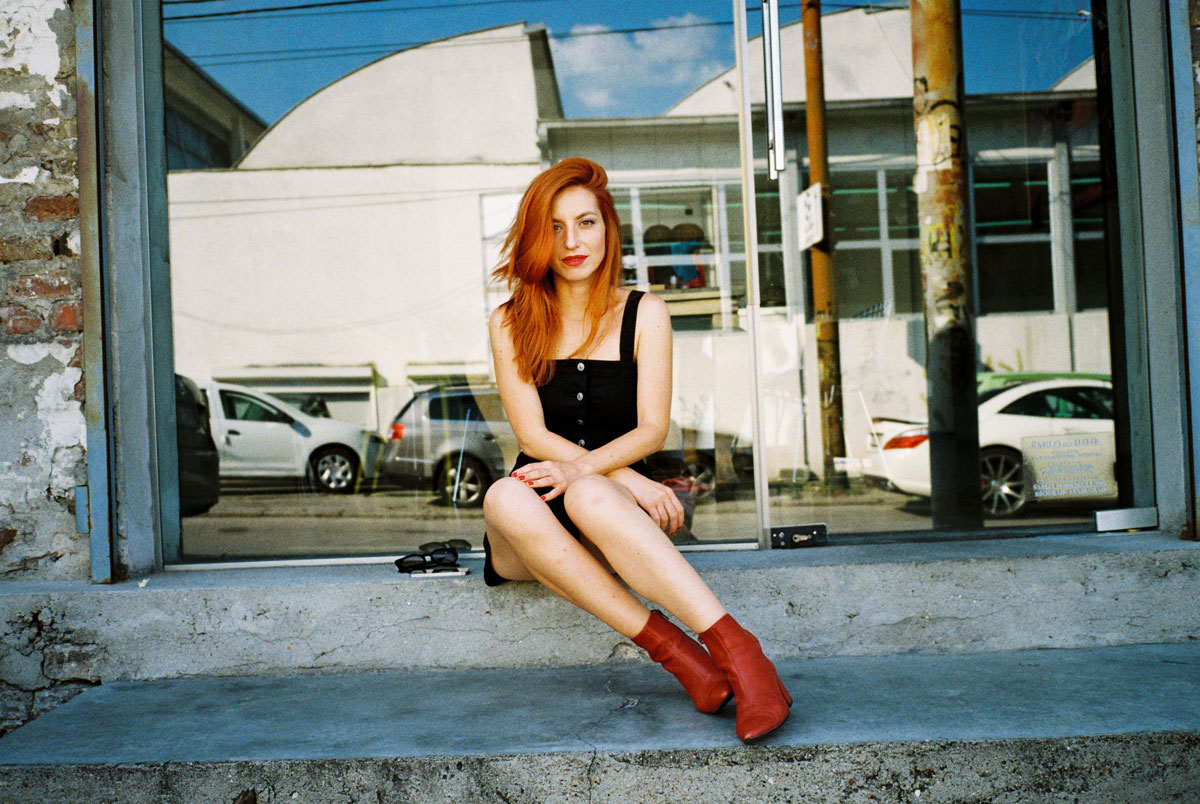
Speaking of detrimental trends, have you observed an underlying issue of depression and anxiety within the electronic underground scene, especially in those who make it all happen: DJs, bookers, promoters, etc?
I’m happy you ask this question, I consider myself an unofficial expert on the subject. I’ve been fighting with both depression and anxiety since as long as I can remember and I’ve been doing therapy for 4 years now. I’ve learned a lot in this process. The issue is not underlying, it’s peaking red; there’s just not enough talks about it. Some of the reasons are on the physical side. If you don’t sleep enough, if you regularly consume alcohol and drugs, if you don’t eat well, if you don’t walk, breathe fresh air, see the sunlight, if you are isolated from people, if you don’t get hugs and kisses, your body will create different chemical reactions than normal. It messes up the hormonal system and induces depression and/or anxiety. So, the DJ lifestyle itself already dictates these conditions. The other thing is external, or social, pressure. It’s a highly competitive scene, or better say business, with absence of clear rules and boundaries, so it can easily affect your feeling of self-esteem. There’s no way of determining why someone is more successful than someone else. These days, values seem to change and go totally upside down, so it’s even more confusing to people who have a bit more of a romantic or idealistic view on things. The scene has grown really big, the electronic music business is a multi-billion dollar monster, so of course it’s extremely stressful to thrive in that kind of environment. Especially if your basic interest is music, and you’re inevitably a sensitive soul.
In what ways do you think we can all collectively and effectively overcome these issues that often impede positivity from moving beyond partying and going into everyday life?
This will sound very rinsed, but it’s all about spreading awareness. I’m trying to do so as much as I can. I’m not bragging about it on social media, but whenever I have the chance to talk with people in person, I do. And this tête-à-tête approach works well. For everyone I talk to, the fact that alcohol is a depressant comes as a huge surprise. People have no clue! Also, depression and anxiety are just two sides of the same coin. So, even having just one drink can trigger depression and/or anxiety. That’s why I don’t drink at all anymore. You can only imagine what drugs are doing in this respect. Also, we need to tell people it doesn’t make you look cool if you don’t sleep for 3 days straight. It’s not something anyone should be proud of, it’s like raping your own body and soul. Not having any time for yourself due to work and travel is also a disaster for the system. So, you shouldn’t be proud if you’re staying in the office ‘till midnight. All of this just shows you don’t like yourself. Mind and body are totally connected, so if you exhaust your body, it reflects on your mind, and if you have mental or emotional issues, it will cause illness.
In fact, this is related to the Western culture of raving too. I see that everything is so organized and structured, even drinking and taking drugs. It comes right after buying your black techno outfit and getting a ticket. Not many people ever question or think about it, it’s just one of the obligatory steps in the game. Not many people take care of each other either. Like, when you see that your friend went too far, tell them. Social pressure is really bad. Sometimes, I fake drinking just so I wouldn’t have to explain why I’m not drinking. My honest response would be, Why are you drinking? That’s a much harder question. I don’t wish to say everyone should be sober all the time. I do understand the pleasure and the function of drugs and alcohol, but if we’re talking about mental issues, maybe we just be more aware of the consequences.
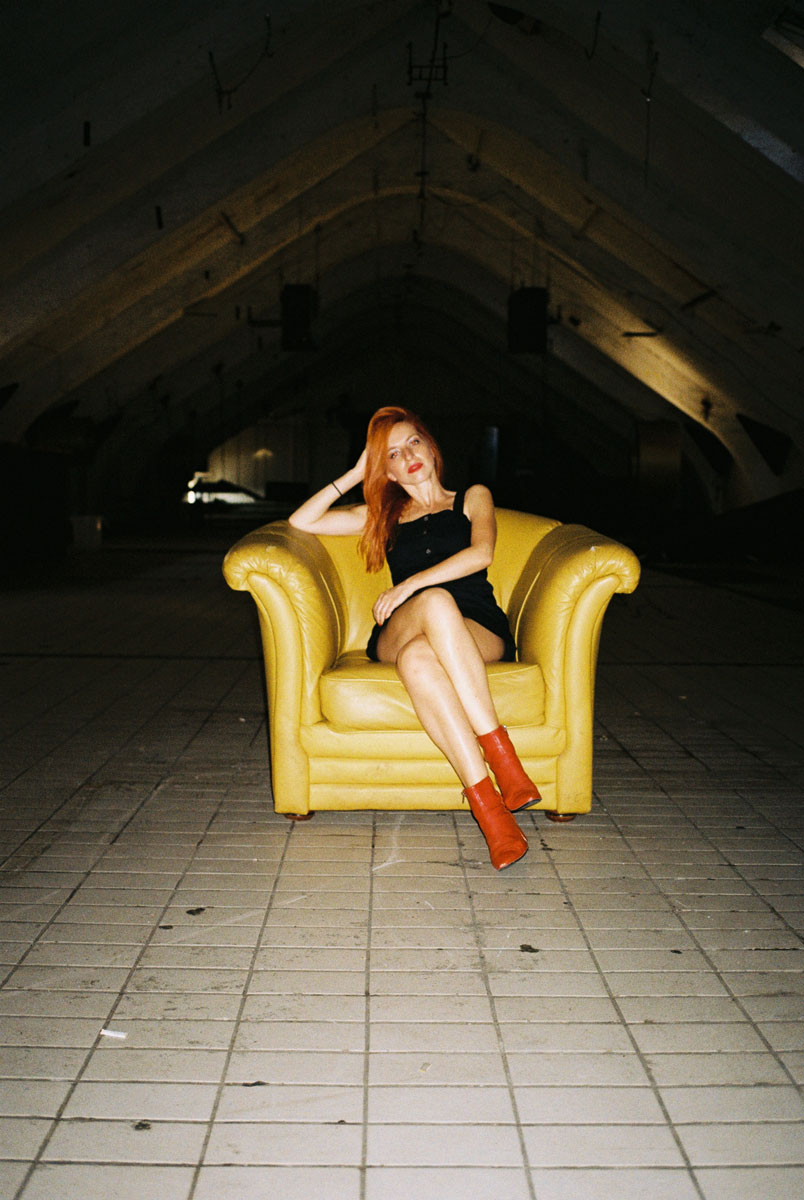
Perhaps related to common issues of depression and loneliness in touring DJs, I wanted to ask you about your legendary after-gig selfies. Here, I’m thinking about how DJs give the crowd so much energy in those couple of hours, and then leave, mostly alone, for the hotel room or for the airport. These are things which the audience often forgets are part of the deal… What motivates you to share those after-gig moments with us?
Ah yes, the lonely moments—when I come back alone from the gig to hotel breakfast and there’s nobody there in the whole room. Or my dinner dates with myself. Or always using just one side of the bed in the room… Artists who can afford it to hire a tour manager or always have an entourage with them, that already makes everything much nicer, easier and more human. But, my legendary after-gig selfies started when I stopped drinking. I discovered that I look 10 years younger and my skin is better than ever. The second revelation was that even after 8 hours of playing, I look exactly as fresh as I was when leaving the house. So, I was just super proud and excited about how I look. Then, it became a tradition and now it’s almost a viral meme.
Circling back to your varied music taste, you apparently don’t want to limit yourself to being a brand either. Today, we’re observing DJs with distinct fashion styles, merch, social media crazy fandoms… It often feels going to a party is buying into a lifestyle rather than enjoying a liberating experience. What are your thoughts on this, and is there something that’s lost in the branding of underground culture?
It’s always been a lifestyle, but in the past there was also an ideology behind it. There was a collective dream, it was rebellious to be part of the rave culture. It was not so fast-consuming. I think that train is moving too fast to stop it now. It’s just what it is today—DJs are like football players or pop stars. As I said before, the whole industry generates a lot of profit, so that’s how things are rolling naturally. It’s a reflection of today’s world and I don’t believe this is the only industry in which we see the consequences of the system. Our behaviour and communication are programmed by consumer-oriented algorithms, what else should we expect? That Fyre festival documentary is a very good representation of humanity today: in the DJ world and elsewhere. The important thing for each and every single one of us is to remain realistic and not lose an idea of why we are where we are in the first place. One should not compare with the other. If you are there for the music and experience you should not compare or worry about someone who is there obviously for attention and profit. It is important to just be honest to yourself.
Tijana, at last: why do we rave, and will we always keep on raving?
This is like asking, Why do we have sex and will always keep on having sex? Raving is a form of communication. It’s necessary. Dancing has many different functions between humans, and, as I said, this collective mind-and-body experience is transformative. Raving is a form of collective physical meditation. For further references, check out the research of Bogomir Doringer, follow Eris Drew on Twitter and read an occasional Honey Dijon post. These are the vocal and articulate people on the topic.
Notifications